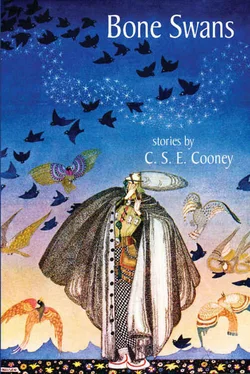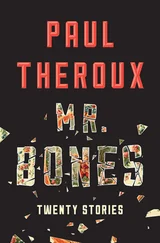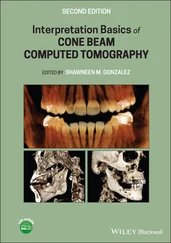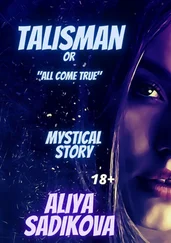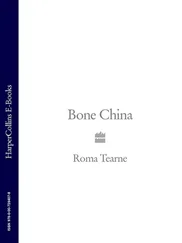The Gacy Boys spoke in a ragged chorus of whispers and whistles. Their voices ran together. Beatrice could only pick out fragments.
“A nice, fresh one, sire—a grotesque from the tenements, but…”
“Intruders—”
“Driven off—”
“Three heartbeats, with weapons. Rocks. Knives. Sticks—”
“One, tarted like a clown, but far too tall—”
“A dog, sire, with terrible teeth—”
“A dog?” Beatrice pushed past the line of Gacy Boys, would have marched right to Chuckle City to see for herself, but the Gray Harlequin shoved her to the ground.
“Stay where you are!” he growled.
“Sire,” said a Gacy Boy, “they were right behind us.”
Beatrice, choking on a mouthful of dust, tried to raise her head. But the Gray Harlequin had stepped upon it. She could only turn it to one side. Beyond the forest of Gacy Boy legs, several familiar pairs of feet moved toward her.
First: white tennies, worn with more grace than a pair of satin ballet slippers. Second: scuffed and scarred combat boots, boys’ size eight. Third: a pair of pink patent leather Mary Janes smaller than a Snickers bar. Fourth: four brown paws, dusty and dear. Fifth and last: two banana-yellow boats.
“It’s my Barkas,” Beatrice whispered. “But how did…?”
“Oh, hallo, Harlequin!” cried the Flabberghast. “So good to behold your blindfold again! A few of us wondered where you’d gone when the hills opened up and the world was ours. How is your hand? Necessity demanded the damage; we hope you will forgive. By the way, Young Texas, you have a most excellent arm!”
“Thanks, Flabby. You in there somewhere, Queen B?”
Beatrice spat dust to bellow, “Down here! Tex! Di! Granny! Sal!”
The Gray Harlequin’s velvet-shod foot pressed hard upon her skull. Her mouth filled. The dust of the Big Bah-Ha tasted like ash.
“Had I known, my friend,” said the Gray Harlequin, “that you intended to visit, I would have prepared a welcoming party. Ceremonies, parades, cannonades…” His rancor ground Beatrice beneath his heel.
Snorting, the Flabberghast noted, “Nothing in this blasted heath remembers how to throw a party, Harlequin, least of all you. You brought the Big Bah-Ha to the brink of ruin. Cannons could only improve the place.”
The Gray Harlequin grinned most redly. “Perhaps. But who is left to care? Only the dead come here, and those are all mere children. They don’t know any better. They barely know their own names. The wretched brats needed a keeper. Who better to wear the August Crown than myself?”
The Flabberghast rocked in his yellow shoes. “Let us set aside for the nonce a debate regarding the befitting resettlement of souls, the governance of the deadlands, and the corruption of the August Crown. Let us instead, dear Harlequin, turn to the more important question of aesthetics. The plain truth is, Harlequin, you have made the Big Bah-Ha far too ugly. And I cannot abide ugliness.”
“You live in a cardboard box,” sighed the Gray Harlequin. The tension in his toes did not ease. Beatrice thought that if he pressed any harder, her skull would explode.
“It only looks like a cardboard box,” the Flabberghast retorted. “Anyone who enters knows it for a palace. But this place?” He shook his head. “Last I visited the Big Bah-Ha, the skies were endless and sapphirine. Where now only thin grooves mark the dust, there once flowed seven mighty rivers. Manticores, glatisants, silver-bearded unicorns abounded, offering songs, riddles, rides to the young newcomers, who looked upon them with awe and wonder. Green was the grass, sweet were the flowers, and everything smelled of something even better blooming in the distance. Such wild, clear music rang from dryad lips and satyr horns. Such dancing gadabouts were held, such glad feasts. Chuckle City, your degraded city, was a city of silken tents, not tenements, each flowing canopy woven of silver silk spun anew every morning by the Eleven Lovely Emilies. And how lovely they were, the Keepers of the Hourglass, the Guardians of the Gate. How lovely they were, but see what they have become!”
The ring of Gacy Boys hooted and cooed uneasily. Perhaps they remembered such a time, remembered too how they had forgotten it. But the Gray Harlequin only sneered.
“They are all still here, Flabberghast—the monsters of whom you so fondly reminisce. Glatisants, manticores, centaurs, tra-la, tra-la, et cetera, they are all to be found in my petting zoos. As for your Eleven Emilies—it is a stretch, is it not, to call them lovely?—they work for me now. In exchange for food. I do not think there is a prettier sight than an Emily feeding on what falls from the wires to her web.”
“What is the food?” asked the Flabberghast. Beatrice thought she heard a thread of nervousness and longing running through his words. “This is the Big Bah-Ha. It is the last and lowest of the deadlands. There is nothing to eat here but the souls of those who died too young.”
“Exactly so,” hissed the Gray Harlequin. “Can’t you smell them, Flabberghast? So sweet, so rare, so plump with potential. So much finer than the coarse stuff of carbon.”
“Souls!” That one word was almost a wail. Beatrice squirmed beneath the Gray Harlequin’s crushing shoe. “What need have you of souls, when all the bones of a dead world are ours for the digging?”
The Gray Harlequin’s laughter was like a cougar sharpening its claws on a hollow tree. “Digging in the dirt like worms, like maggots, like old blind moles under Hillside Cemetery, where we voluntarily entered a debasing confinement until the last human falls. The whole world is not ours for the eating, not for years yet, my Flabberghast, not unless you’ve sped along the deaths of all those little ones running wild in their packs. Have you, Flabberghast? You alone among us had the freedom to do so. You alone of the Tall Ones were allowed passage beyond the gates. Our great ambassador to those little human meat lumps. You, who were once our jester! Our fool!”
“No one objected at the time.” The Flabberghast had smoothed his voice again. If the Gray Harlequin was syrup, the Flabberghast was a rich, tasty grease of butter, and Beatrice, squashed flat between their voices, was beginning to feel like the pancake.
Then she heard Tex shout, “Hey, Flabby, is that snotbum another of all y’all Tall Ones? Thought you said only kids were allowed in here.”
Diodiance asked, “How’d he even get in?”
At Granny’s behest, Sheepdog Sal barked, and at the sound, the others of the Barka gang hushed, remembering how they’d gotten in. They fingered the half-healed holes in their wrists. Somehow they couldn’t see the Gray Harlequin asking a living child politely for his blood. He’d just take it and paint his red doorway on any old skin. He wouldn’t even have bothered bringing a living child in with him, for he’d never planned on coming back out. The Flabberghast spoke into their awful silence.
“Our prison term, if that is what you wish to call it, Harlequin, is only a matter of a few short years. The slaprash lingers. When the last human remnant comes of age…”
Here he stopped, but Beatrice knew how the sentence would end. They all did, back home.
“Breath starts to rattle
Like dice in a cup
And the slaprash’ll getcha
When—you’re—all—growed—up!”
Even for the youngest among them, even for Granny Two-Shoes, it was only a matter of time. Till they grew up and died dead, slapped red. Beatrice closed her eyes against the pain of it, the futility, the hopelessness of such a future. What was the point?
And, as if summoned, Granny’s face appeared between one of the Gacy Boys’ sticklike legs. She waved at Beatrice and smiled. Her one gray tooth was like a keyhole amid the bright glare of the whiter ones.
Читать дальше
